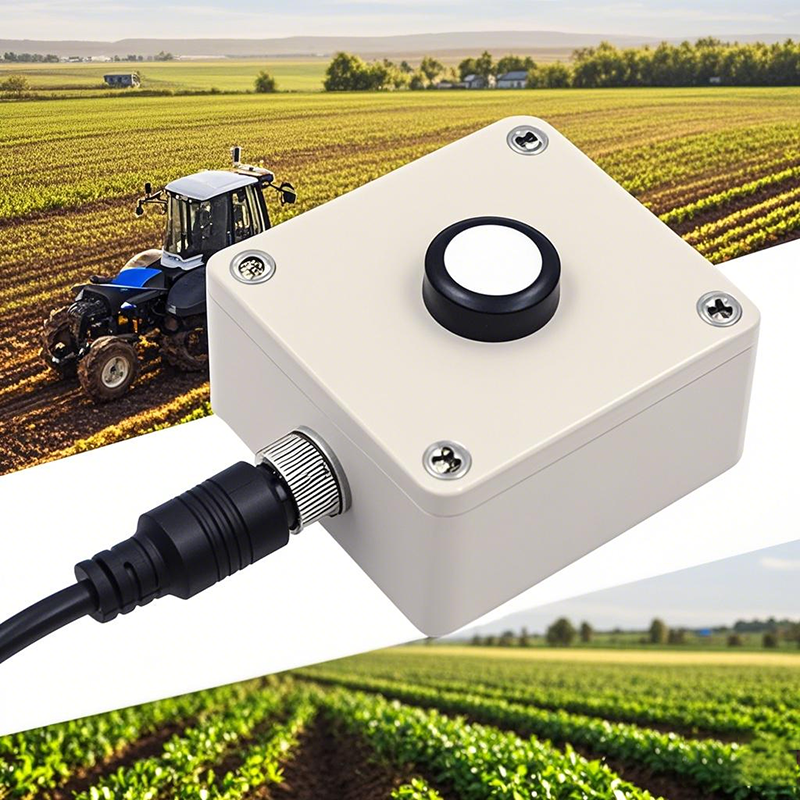With the increasing global attention to renewable energy, solar energy has been widely used in recent years as a clean and sustainable energy source. In order to make better use of solar energy, accurate monitoring of solar radiation intensity has become an important part. In this area, solar radiation sensors have emerged, not only to help researchers obtain data, but also to provide a reliable reference for farmers, architects and energy developers. This paper will discuss the application of solar radiation sensors and their advantages, and illustrate their effects in sunlight capture and management through a practical case.
What is a solar radiation sensor?
Solar radiation sensor is an instrument used to measure the intensity of solar radiation, usually divided into photovoltaic sensor and thermal radiation sensor two types. They can record the radiation intensity of both direct light and scattered light in real time, providing a scientific basis for the efficient use of solar energy. These sensors are widely used in weather monitoring, solar power generation, architectural design, agriculture and other fields.
Advantages of solar radiation sensors
Real-time monitoring: Solar radiation sensors capture radiation data in real time, providing users with accurate sunlight information to help optimize the design and operation of solar systems.
Data analysis: Through long-term data acquisition, users can analyze radiation patterns in different climatic conditions and optimize energy use and management strategies.
Environmental protection: The collection and analysis of solar radiation data can provide support for the promotion and application of renewable energy, reduce dependence on fossil energy, and promote environmental protection.
Precision agriculture: In agriculture, sensor data can help farmers determine the best time to irrigate and fertilize crops, improving crop yield and quality.
Actual case
In order to better demonstrate the practical application of solar radiation sensors, let’s look at a real case:
At an agricultural cooperative in a city in southern China, farmers have been faced with the problem of how to properly use sunlight for greenhouse cultivation. With the construction of greenhouses, they hope to maximize the yield and quality of crops, but there is a lack of effective sunlight monitoring means. So, they decided to introduce solar radiation sensors for sunlight data acquisition.
After installing the sensors, the co-op’s management team was able to monitor the intensity of sunlight radiation inside the greenhouse in real time. They found that in some time periods, the radiation intensity reached optimal planting conditions, while in other time periods, measures such as shading were required. By analyzing this data, they developed a precise management plan: turning on the ventilation to reduce the temperature inside the greenhouse during the most intense hours of light, and adjusting the arrangement of plants when the light is low to ensure that each plant gets enough light.
After a period of follow-up monitoring and data analysis, the crop yield of the cooperative has improved significantly. After the implementation of the new management plan, the yield of their crops such as tomatoes and cucumbers increased by 30%, while the quality of their products also improved significantly and became more popular. Ultimately, this shift not only boosts farmers’ incomes, but also promotes sustainable agriculture.
Conclusion
Solar radiation sensors have become an important tool for sunlight resource management, providing critical data for scientific research and everyday applications to help achieve sustainable development. With the advancement of technology and the enhancement of people’s environmental awareness, this product will play an important role in a wider range of fields. Whether it is scientific research, agriculture or architectural design, the application of solar radiation sensors will help capture the power of more sunlight and contribute to promoting a green future.
For more sensor information,
please contact Honde Technology Co., LTD.
Tel: +86-15210548582
Email: info@hondetech.com
Company website: www.hondetechco.com
Post time: Apr-02-2025


